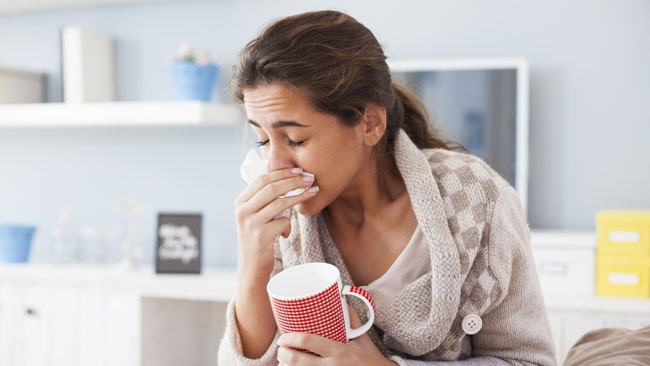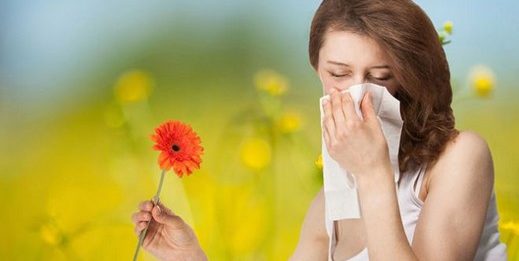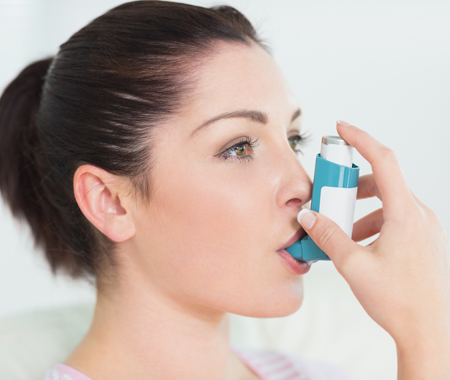Spring has come, winter is over, flowers have bloomed, nature has left its moodiness and started to beautify. Unfortunately, it is not only beauty that comes with spring, but also brought diseases with it. Well, how do we stay away from these spring diseases, how do we get through with the least problem, in this article we will try to help you as much as we can on this subject.
Infections

During the winter months, we were exposed to many diseases, especially influenza and colds. With the arrival of spring, just as we say ‘we got rid of winter flu’, this time we are exposed to upper and lower respiratory tract infections caused by other viruses as a result of the weakening of the immune system due to the variability of the weather.
How to be protected: The first thing you need to do to protect yourself from infections is to eat a healthy and balanced diet and prevent contact with sick people. Since most infections are transmitted by hand and mouth, wash your hands with soap as often as necessary. Ventilate your environment regularly. Since sports and taking advantage of sun rays are important elements to protect against diseases, walk briskly for half an hour at least 3 days a week. Since vitamin C and vitamin D are the most strengthening factors for the immune system, do not neglect to increase vitamin D with sun rays while benefiting from fresh fruits and vegetables as a source of vitamin C.
Spring allergy/Alergic rhinitis

Spring allergy is a disease that affects quality of life. Complaints such as burning, watering and itching in the eyes without fever should suggest spring allergy. These complaints can affect the school success of children or the performance of adults during the day. Since this situation also affects the function of the upper respiratory tract, people with allergic constitution encounter sinusitis and ear infections more frequently than other people.
How to protect: It is important for people with spring allergies to stay away from places where trees and flowers are dense. It may be useful to remove dust-collecting items such as carpets and rugs at home and to have frequent cleaning. Allergy medication or vaccination is used in appropriate patients. It is very important not to neglect the treatment in order to prevent the disease from turning into asthma.
Asthma

With spring, pollen causes complaints such as sneezing, runny nose, colds and shortness of breath in allergic people.
How to be protected:Asthmatic patients are at risk of frequent attacks in the spring months, so medication treatment may need to be rearranged in these patients. As a precaution, care should be taken not to go out in the morning hours, windows should be kept closed, ventilation of the house should be left to late hours when pollen decreases. It should be remembered that when you return home in the evening, you should change your clothes and take a shower.
Gastrointestinal diseases

Diseases of the gastrointestinal system, especially gastritis and reflux complaints increase with the spring season. In this period, diarrhoea cases due to some viruses are also common. Intestinal irregularities may also occur with stress and dietary changes.
How to protect: You can also reduce gastrointestinal complaints with a careful diet. It is important to drink plenty of water, wash vegetables and fruits with plenty of water and not to consume greens and raw vegetables outside where you are not sure that they are well cleaned.
Spring fatigue

With spring, complaints such as weakness, fatigue, drowsiness and joint pains are common. Along with changes in hormonal systems and metabolism, the mental structure of the person is also affected. Changes in nature such as light, heat and colour are expected to have a positive effect, but negative effects are inevitable when adaptation is not achieved. But you can resist spring fatigue with some precautions. If it does not go away despite these measures, it is useful to see a specialist as there may be another underlying cause.
Ways of prevention: To prevent spring fatigue, it is especially important to consume 2-3 litres of water and a balanced diet containing sufficient vitamins, minerals and antioxidants. During this period, you should exercise regularly such as walking, jogging and swimming, and pay attention to adequate sleep, work/rest intervals and temperature changes. Smoking, caffeine and alcohol should be avoided.
We wish you a beautiful, pleasant and healthy spring. Take care of yourself to meet in our next article. 😇
